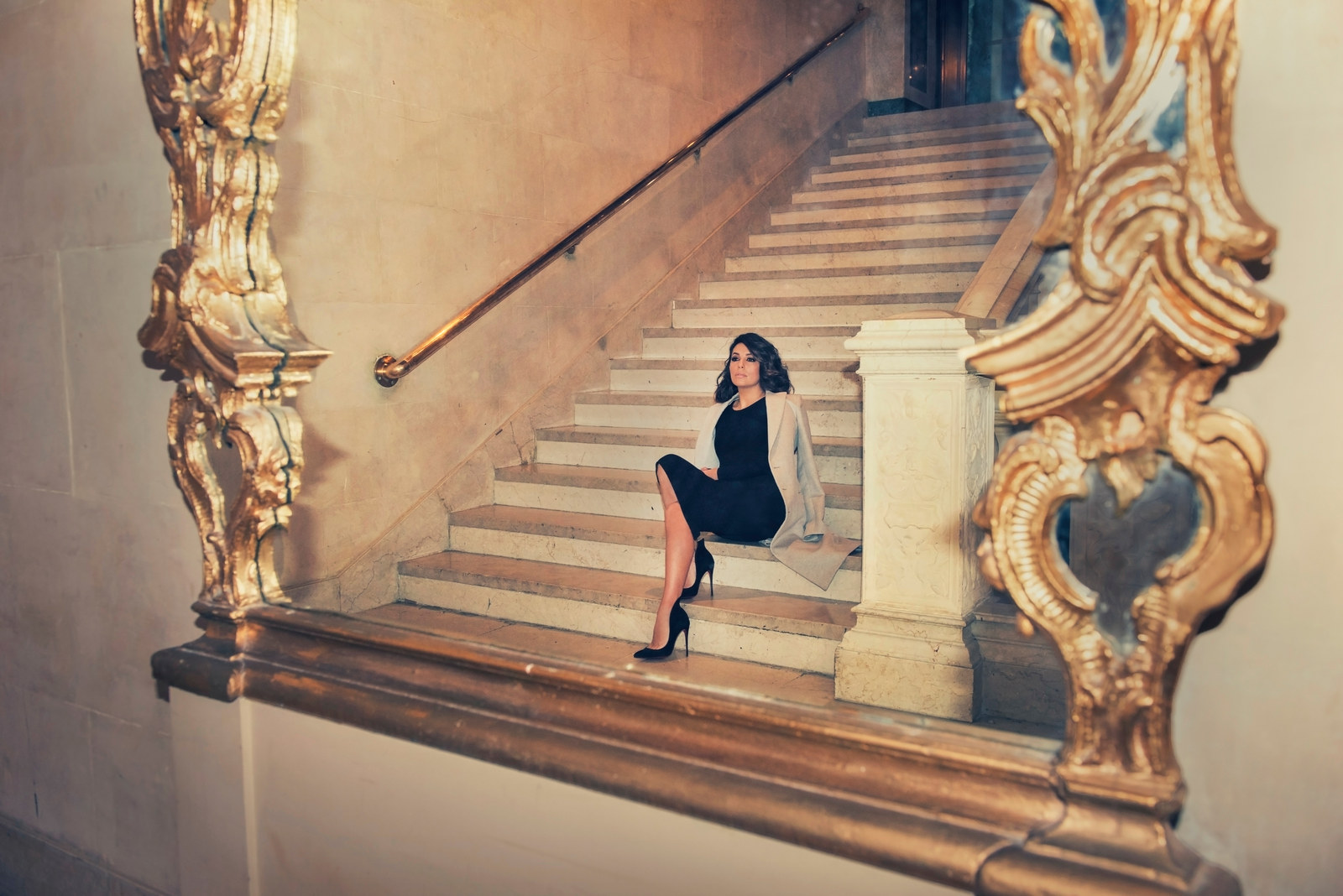Every single one of the 24 hours in Eva Longoria’s day is meticulously scheduled, down to the minute. “Including sleep,” she said with a laugh. “I get eight hours a night, every night, because I budget for it.” It’s clear Longoria is a control freak — a fact she will proudly tell you herself. And after watching her at work on the set of her new NBC series Telenovela, a behind-the-scenes look at a Spanish-language soap, it’s easy to understand why.
The 40-year-old actor, producer, and — on this day — director literally ran to set, where she made quick work of a scene before tossing on a hoodie (her de facto “director’s cap”) over her all-white ensemble and sprinting to a brief wardrobe consultation. She needed to test how well co-star Amaury Nolasco’s shirt tore away for a gag later in the episode. Then, she hustled back down the hall, strands of hair caught up in the wind created solely by her gait, to confer with the throng of producers who had been discussing a pacing issue in the scene from behind a bank of monitors in video village.
There, two conversations were carried on simultaneously: Longoria and the writers tightened the scene, and Longoria and the camera operators established the speed of an accompanying camera movement. After everything was to her liking, she threw the hoodie on the director’s chair she rarely finds time to sit in, tossed back a sip of water, and walked in front of the camera to tackle the revised scene once more.
“There's not a prop, a line change, a lighting setup, a camera move, or a sofa that I don't touch or have a say in,” Longoria told BuzzFeed News a month after that set visit while reclining in a lavish suite at New York City’s famed Plaza Hotel.
But this is more than Longoria flying her "control freak" flag; she is simply not leaving anything to chance when it comes to her long-anticipated television return.
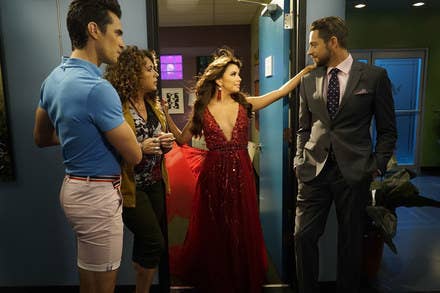
Although Longoria was incredibly drawn to Telenovela as a producer from the get-go — "It was a world I had never seen on TV. It was your basic sitcom characters, but it’s the first kind of general-market sitcom that could appeal to Latinos" — she didn’t originally plan to star on the series.
That is, until writers Chrissy Pietrosh and Jessica Goldstein took a pass at the pilot script. “I read the first draft and I said, ‘Oh my god, I want to play Ana Sofia,’” Longoria said, smiling at the memory. The lead character she couldn’t resist is a telenovela superstar whose reign is threatened by the arrival of a new co-star, Xavier Castillo (Jencarlos Canela), who also happens to be her ex-husband. “She was so funny. I laughed out loud every time she was on the page, and that's what made me want to go back to television,” Longoria said. “I was on the greatest show in the last decade and people always say, ‘You can't compare it,’ and I say, ‘No, I can. I'm not going back to TV unless it's a role as good as Gaby.' Why shouldn't I measure it to that?”
Gaby is, of course, Gabrielle Solis, the materialistic ex-model who traded the runway for suburbia that Longoria played for eight seasons on ABC’s Desperate Housewives. It was the role that made the then-unknown Longoria famous and the one that helped her foster the work ethic that’s still with her a decade later on Telenovela. “Hourlong dramas are the hardest. Your life is not your own. You can't schedule a dentist appointment; you can't schedule anything, because you're totally at the mercy of their schedule,” she said, comparing her first TV experience to her current half-hour comedy. “I loved it, but we'd have four to six weeks off every summer and that was it. It was just not long enough to unplug before you were plugged back into the machine of television.”
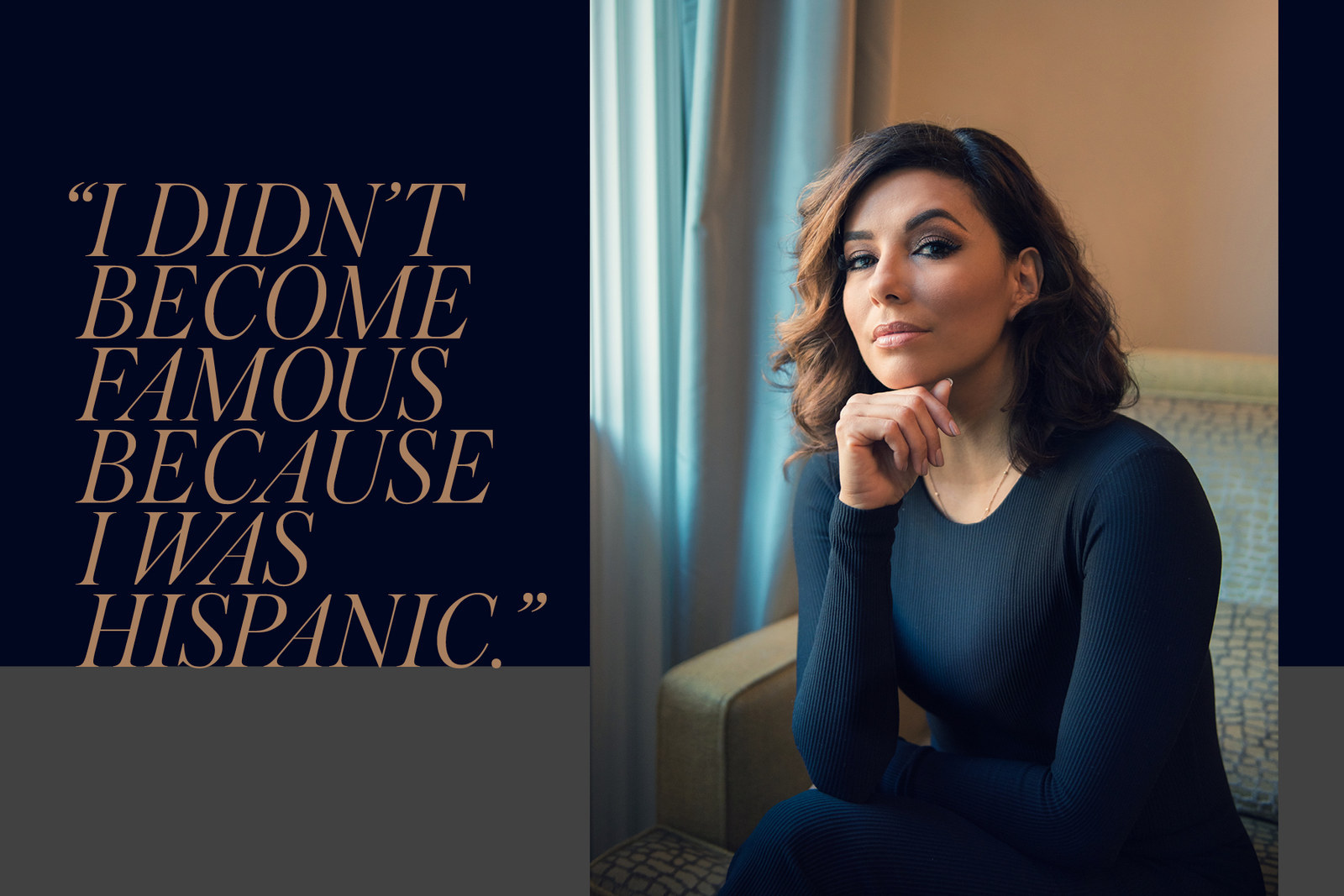
Longoria was 29 years old when she first auditioned to play Gaby in February 2004, and, according to creator Marc Cherry, the role was hers for the taking long before they even met. “I was interviewing four casting directors, and they were starting to give ideas about people they saw in the various parts to indicate that they were thinking the same way I was, and all four — independently of one another — said, 'There's this lady you should check out named Eva Longoria,’” he said in a phone interview with BuzzFeed News. “Eva was this well-kept secret in the business. Everyone knew she was going to pop in something; the question was who was going to get to her first.”
There was only one problem: “No one had mentioned how short she was,” Cherry said, with a laugh, of the 5’2” actor who was auditioning to play a former runway model. “But then she read the part and I did not care how tall she was anymore because she was just so perfect.”
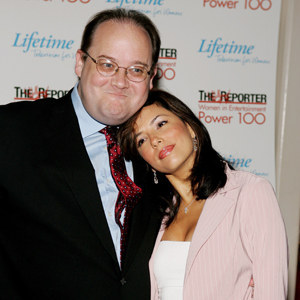
She was the first actor cast on Desperate Housewives. And although Longoria absolutely loved the script — and, according to Cherry, turned down other, higher-paying pilots that year to play Gaby — she felt it was a long shot to actually air. “I was saving my money from the pilot because I didn't think it would get picked up,” she said, with a laugh. “It was so different and new and outside of the box; it wasn't a comedy, but it wasn't a drama either. It was a great pilot, but I started to look for my next gig. But then all of this buzz started before we even aired, and then we got booked on Oprah — Oprah! The landscape of TV was wide open in that particular moment for a show like Desperate Housewives. It touched a nerve with women all over the world — about their daily lives and what they encounter and that you never know what's going on behind the doors of your neighbors. It was a perfect storm.”
More than 21 million people tuned in for the Housewives pilot in October 2004, and that audience grew to more than 30 million by the Season 1 finale. The series went on to garner tons of critical acclaim and win countless awards, including seven Emmys. “Desperate Housewives was universally loved by everybody: every color, every sex, every sexuality,” Longoria said.
It wasn’t long before its stars — Longoria, Teri Hatcher, Marcia Cross, Nicollette Sheridan, and Felicity Huffman — became television’s most famous faces, and Longoria was one of the most prominent Latina stars on network television.
But the character of Gaby was far from an instant hit when the network showed a focus group the Desperate Housewives pilot. “Her character tested the least well because of the affair,” Cherry said of Gaby’s relationship with John, her gardener. He deduced that the issue lay in the fact that an actual 17-year-old was playing the role in the pilot. After they replaced the young actor playing John in the pilot with 26-year-old Jesse Metcalfe, everything clicked. “Once you got past the pilot, and we really started to examine their relationship, and all the dynamics of Carlos [Ricardo Antonio Chavira] and Gabrielle, it wasn't long before Eva became a fan favorite. I've always compared Eva to Rue McClanahan because they share a similar gift, which is the ability to do horribly narcissistic and selfish things and yet remain likable the entire time. Not every actress can do that.”
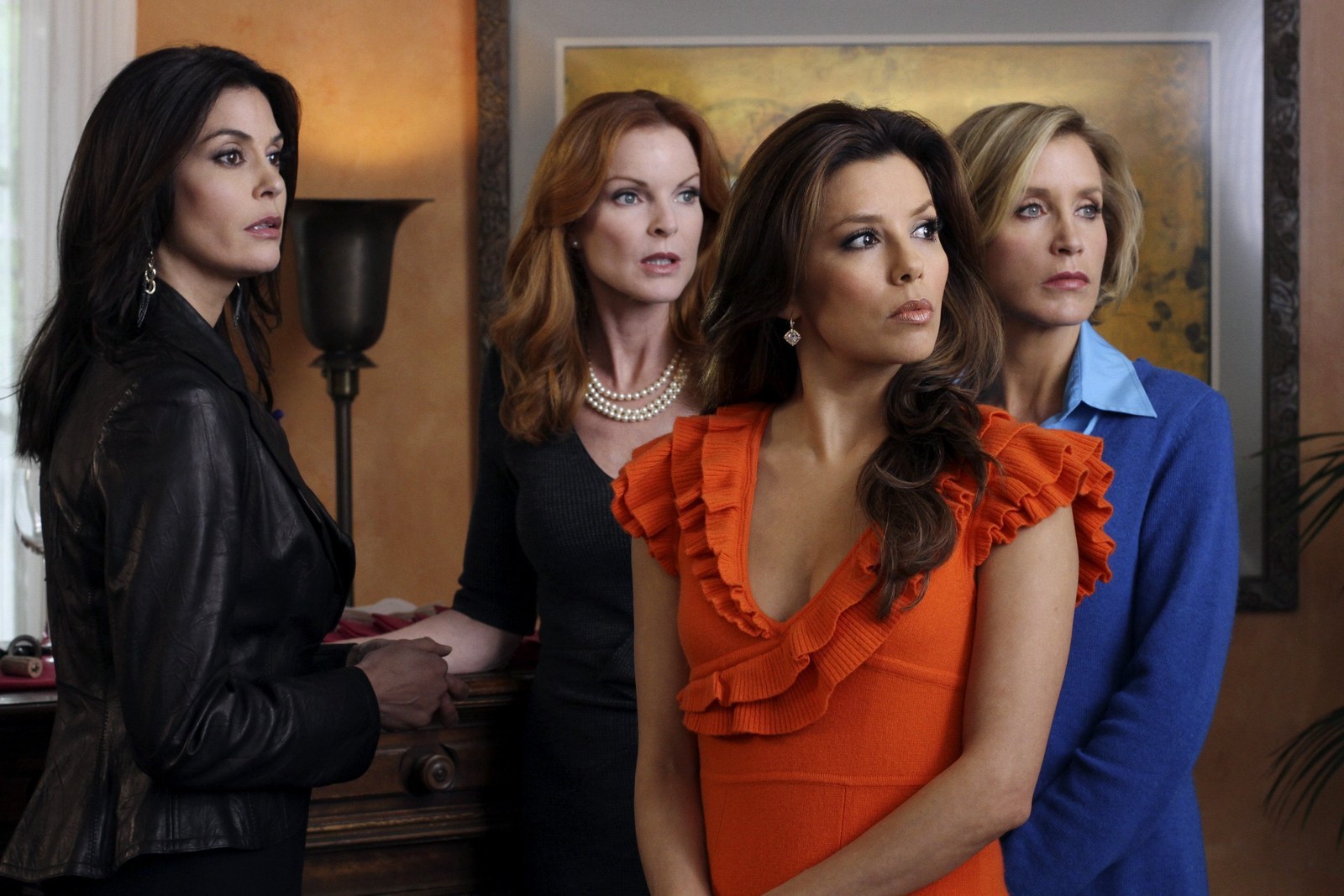
Longoria said she personally never balked at Gaby’s more incendiary behavior — like that extramarital affair with her teenage gardener, helping a criminal evade arrest, and covering up a murder, for starters. “I don't think there's any such thing as a bad example for our community. Everything should be reflected in layered and complex characters — it's who we are in life,” Longoria said. “I made my fame as Eva Longoria, not as ‘Latin Eva Longoria.’ I'm the one who climbed the mountain and screamed, ‘I'm Hispanic!’ But I didn't become famous because I was Hispanic. I think there's a very big difference.”
That multilayered human experience was front and center over the course of the show as Gaby went from unhappy wife having an affair, to mother of two, to successful businesswoman. And Longoria experienced everything life in Hollywood has to offer as a result, including public scrutiny.
The arrival of Desperate Housewives was perfectly timed to the resurgence of tabloid culture. There were rumors of behind-the-scenes fighting splashed on the covers of countless magazines following a now-infamous Vanity Fair cover story in 2005. The thirst for gossip on Longoria, Hatcher, Cross, Sheridan, and Huffman extended, almost immediately, to their personal lives. Every red carpet appearance, new relationship (particularly her high-profile marriage to basketball player Tony Parker, which lasted from 2007 to 2010), and paparazzi photo was dissected with an intensity Longoria had never before experienced. “I remember people climbing my fences and going through my trash and having to have security everywhere I went because I was being chased by paparazzi — not just followed, chased,” she said.
“But then that all went away.” And so did Longoria.
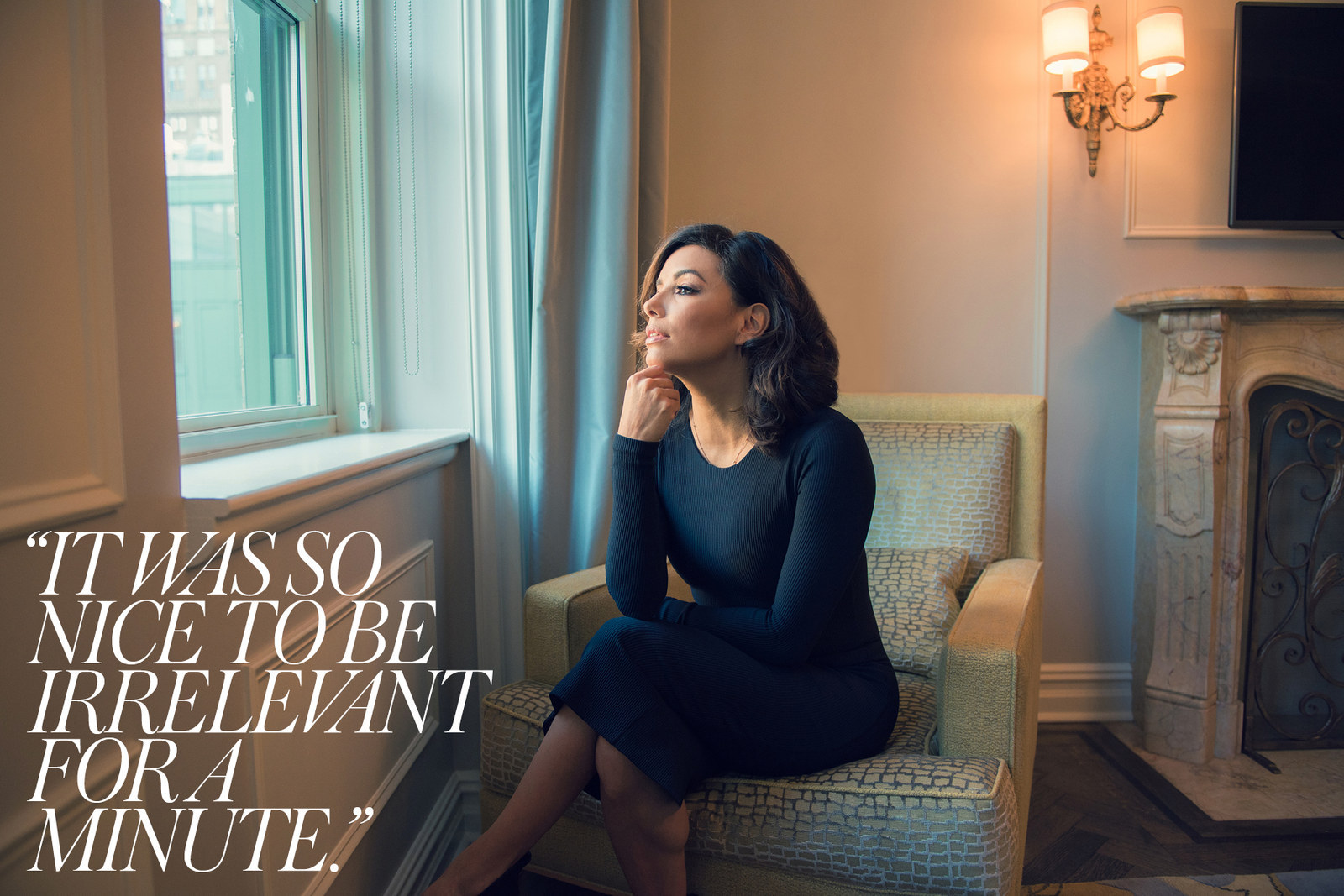
When Housewives ended in May 2012, she very intentionally retreated from the spotlight. “They moved on to the next thing, the next show, the next star, and it was so nice to be irrelevant for a minute,” Longoria said of press attention. “I loved having a little bit of my anonymity back. I enjoyed fading into the background. I loved walking my dog with zero paparazzi because I was not the celebrity of the moment who needed to be photographed at that time. I mean, I was still out there, but in a very different way.”
With a television series no longer consuming 11 months of her life, she was free to focus on her lifelong passions: political activism and charity work. The end of Housewives coincided with the 2012 election, and Longoria was on Obama's re-election committee. “So I dove straight into that,” she said. “The day Housewives wrapped, I had to be in Florida, speaking in seven cities in one day and campaigning and doing voter outreach in Hispanic communities.”
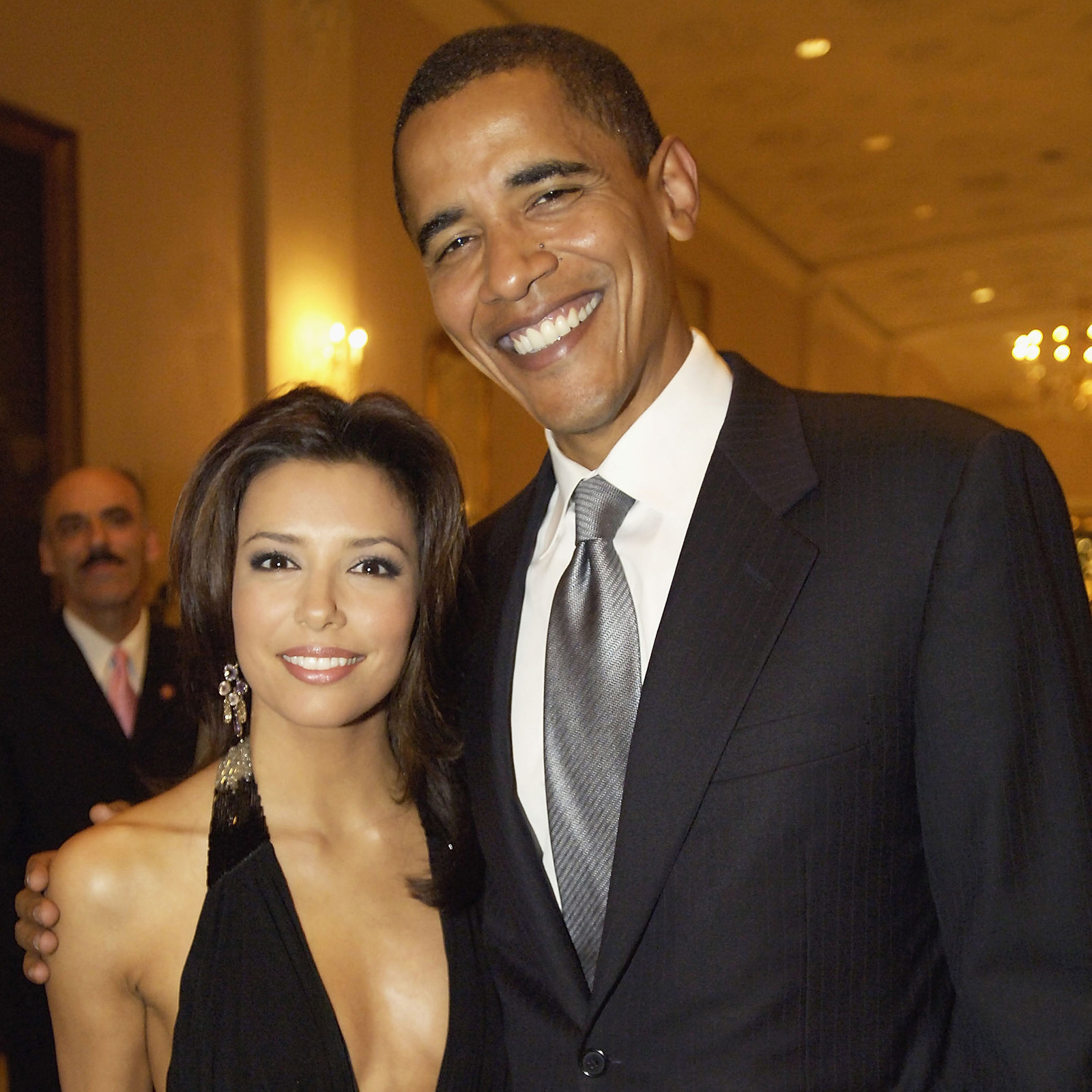
Longoria’s relationship with philanthropy extends all the way back to her childhood in Corpus Christi, Texas, growing up with an older sister, Lisa, who has special needs. “My earliest memories are of the Special Olympics and showing up at 6 in the morning and being the hugger or the registration person,” Longoria said. Her mother, Ella, insisted that her children not only be socially conscious, but socially active as well, because of how much assistance programs had helped them.
“We didn’t have any money growing up,” Longoria said. “I grew up at the Boys & Girls Club, I grew up at the Salvation Army folding coats for their winter, I grew up at soup kitchens every Thanksgiving. That was just the way it was. My family is a very selfless family because we benefitted so much from all these community programs that my mom was like, ‘We have to give back.’ And the only way we could do that was by volunteering. We pay it forward.”
To that end, she established the Eva Longoria Foundation to “help Latinas build better futures for themselves and their families through education and entrepreneurship,” as its mission statement explains; she co-founded Eva’s Heroes, an organization that "enriches the lives of those with intellectual special needs"; and she is the spokesperson for Padres Contra el Cáncer, a nonprofit organization that helps Latino children with cancer and their families.
After 181 episodes of television left her feeling totally tapped out as a performer, engaging with politics again and focusing on her charities gave Longoria a much-needed recharge, emotionally and mentally. “The well of creativity was dry,” she said.
In addition to her work with charities, Longoria turned her attention to other areas to refill that well. She just celebrated 10 years as a L’Oréal spokesperson, has written a cookbook, has released two fragrances, produces television shows (like Lifetime’s Devious Maids) and films (like 2014’s John Wick) through her Unbelievable Entertainment production company, is launching a women’s apparel collection in fall 2016 with Sunrise Brands, and has plans to be an active political presence as America approaches the 2016 election. (“The world, I feel, is off balance in its existence,” she said with the stern and confident delivery of a politician on the campaign trail.)
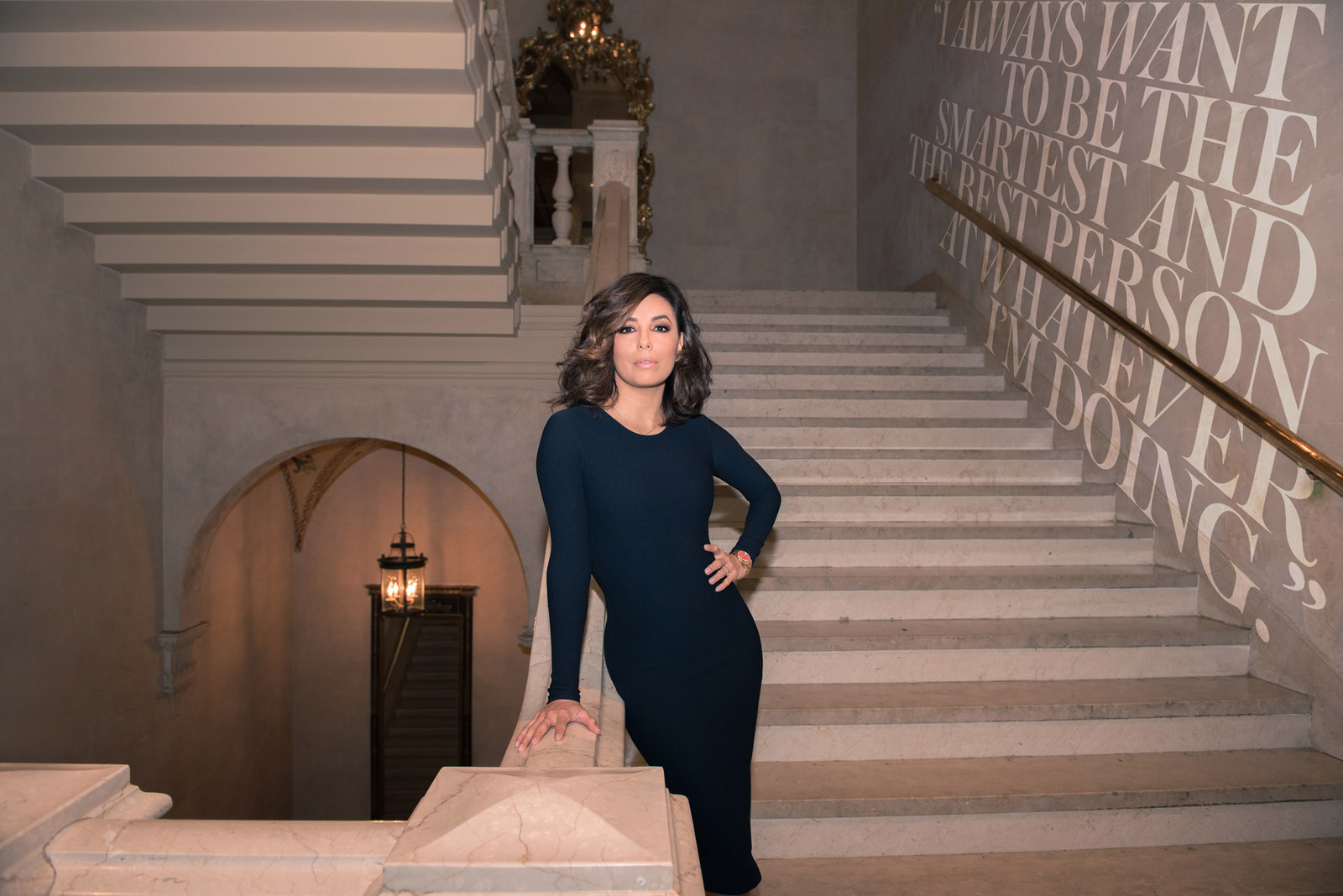
For Cherry, who sees himself as a paternal figure to Longoria, watching her evolve as an actor, a philanthropist, and a person has been one of the greatest joys in his life. “It's been almost 12 years since I first met her, and you always have that little bit of surprise about, When I first met you, I didn't know you were capable of such great things,” he said, his pride tangible, even over the phone. “It's not a complete surprise now because I've seen every single step of the journey, but Eva's journey has been especially spectacular — and what she's accomplished really hit home for me when she spoke at the last Democratic Convention. That's when my heart was at its fullest. Seeing her up there on the world's stage, acquitting herself so nobly, it was a great joy for me, and I'm just so proud of my little Eva.”
But Longoria herself isn’t satisfied just yet.
“I want to do everything,” she said, as if it weren’t plainly obvious. “I need to read everything in all of our development, from story concept to outline to script, all of that. I want to read it, I want to put notes on it, everything. With my clothing line, I want to touch all of it. There's not a material or a pattern that I want them to buy, to approve, or to send through without me touching it. I always want to be the smartest and the best person at whatever I'm doing. It doesn’t come from a narcissistic place. It’s a creative vision that only I have, and when you see some of these disconnected or detached lines or perfumes or makeup, you can tell it's disingenuous. Like a snake oil salesman. ‘Buy this! Hey, you, buy this! It really works!’ But they haven’t used it.”
That intense dedication to minutiae extends to Telenovela, Longoria's most significant onscreen TV work since the end of Housewives. Comparisons between the two shows are inevitable, with Telenovela's catty off-camera antics serving as a wink and a nod to the audience that can easily recall the endless tabloid rumors during Longoria's Desperate days.
While the possibility of a thinly veiled tell-all may bring in viewers hoping to get a fictionalized glimpse of Hatcher, Huffman, Cross, Sheridan, or Cherry (spoiler alert: they won't), Longoria hopes they'll be lured in by the whip-smart writing, the talented cast of diverse comedians, and — as she sees it — the next great role of her career. "We didn't aim to make a statement with the show, we just thought these themes were funny," she said. "And that's probably because there's truth in jest."
The producer side of Longoria's brain knows it's unlikely that Telenovela will replicate the same professional high that Desperate Housewives delivered when it premieres in its regular time slot on Jan. 4 at 8:30 — but that's simply because of how the television landscape has evolved since she last starred on a series. “Having 30 million viewers doesn't happen anymore,” Longoria said plainly. “People don't have to sit in front of a TV on Sunday nights at 9 to watch your show, and if they miss an episode, they no longer have to wait for the DVD to come out to see it.”
As an actor, Longoria was scared to “launch a new show in this climate in which ratings don't really matter anymore and it's all about downloads and views and Twitter buzz,” she said. But as a producer, she felt energized. “It gave me an amazing new challenge. I thought, Let's do it. Let's go. If you want me to stream my show from Mars, let's try it. The game has changed, and it's an exciting time to get back out there. It's like the wild Wild West on TV.”
Longoria knows that, short of an Empire-like phenomenon, she’s in for a very different ride this time — and that’s perfectly OK, because she doesn’t want the spotlight. She has grown accustomed to living her life with her fiancé, Televisa president José Antonio Bastón, whom she calls “Pepe,” outside of the tabloids.
“Coming back definitely gave me pause, especially since I was in a new relationship with someone who had never seen that side of my career,” Longoria said. “Like, I had to tell him, ‘I was a really big deal about 10 years ago.’”
